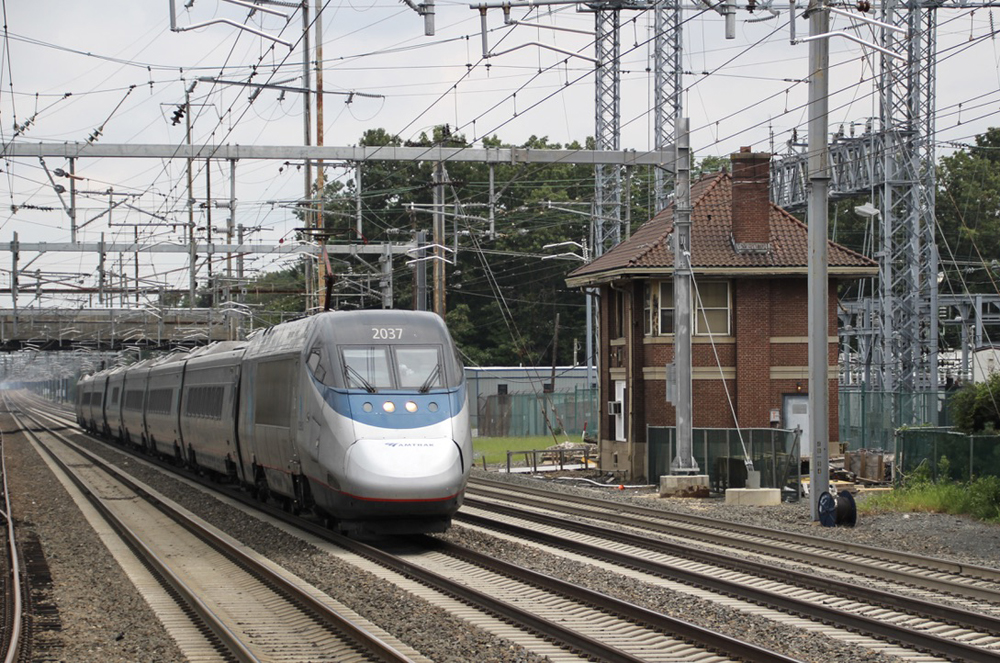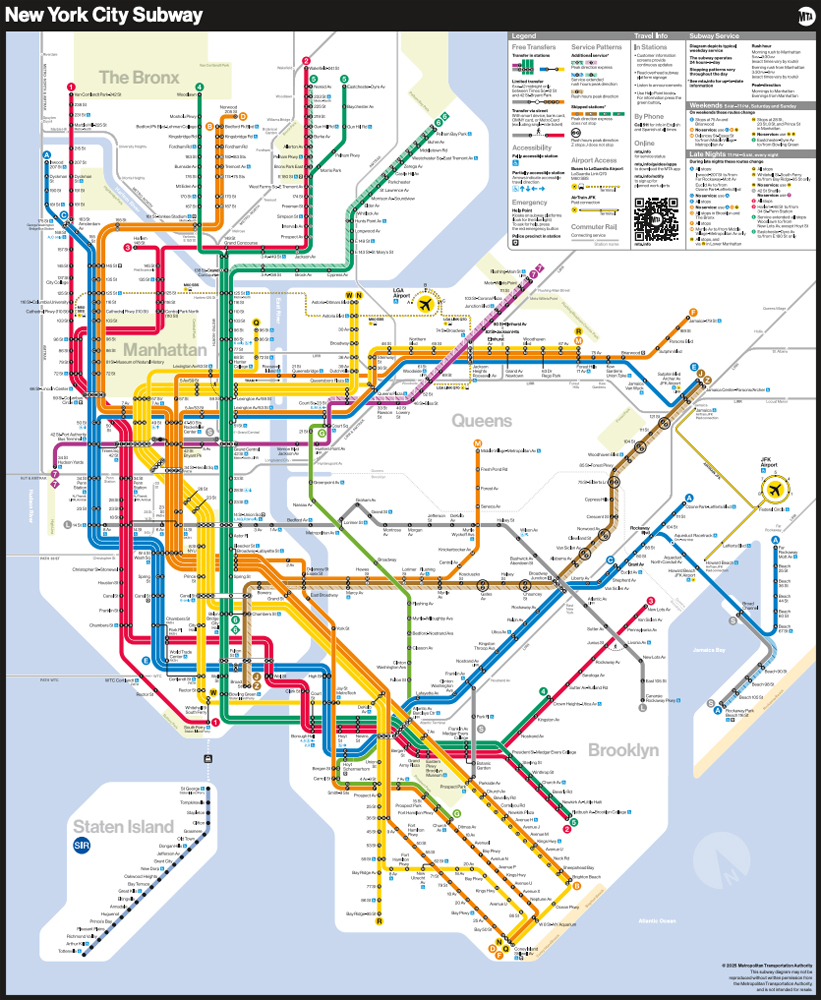
NEW YORK — Operating issues continue for Amtrak on the Northeast Corridor today (Dec. 23), well over 24 hours after disruptions began because of downed overhead power lines near Philadelphia.
The signal issues reported reported an an Amtrak advisory at 4:30 a.m. today have now been resolved, the company says in a 2:30 p.m. ET update. However, “crew constraints and residual issues” continue that mean all trains between Boston South Station and Washington Union Station may be impacted, and some trains have been cancelled to minimize delays. As of 8 a.m. ET, the Amtrak NEC Alerts feed on X.com indicates that Boston-Washington Acela trains 2155, 2169, 2173, 2193 have been cancelled, as have Washington-Boston Acela trains 2162 and 2172. Also cancelled are Northeast Regional trains 112 (a 7:45 a.m. Washington-New York train), 114 (10:10 a.m., Washington-New York), 181 (a 5:45 a.m. New York-Washington train), and 131 (12:10 p.m., New York-Washington). Train No. 185 (a 9:25 a.m. New York-Washington departure) was later added to that list.
“Unfortunately, there is no estimate for the resumption of standard operating service,” Amtrak says in the latest update.
As of 4:45 p.m. ET, NJ Transit shows all Northeast Corridor trains as operating on time. AThe Southeastern Pennsylvania Transportation Authority’s Trenton Line, which operates on the Northeast Corridor, currently lists delays of up to 15 minutes, but that is currently true systemwide for SEPTA because of weather conditions.
The Northeast Corridor issues were first reported by NJ Transit at 3:30 a.m. on Sunday and involved downed power lines near Philadelphia’s 30th Street Station that led to a suspension of all Amtrak service between New York and Philadelphia for most of Sunday morning [see “Some Amtrak, NJ Transit service … restored,” Trains News Wire, Dec. 22, 2024]. One track was restored to limited operation around noon; by Sunday evening, Amtrak was reporting one track was fully operational while two were allowing operations at reduced speed.
— Updated at 3:55 p.m. CT with afternoon conditions.













Frankford Jct.? The question now becomes was this part of the CAT torn down when 188 derailed? Then was that CAT replacement not done properly? Was it a snag or something else?
The low temp today, Mon 12-23, was 10 above at NY and 8 above at Phila. These are the coldest temps in years and it’s early in the season meaning the hardware hasn’t acclimated itself yet.
The wire problem Sunday was at Frankford Jct. 8.6 miles from 30th St. (Upper Level)
Maybe just a tad overstated, Al, but mostly true. I see three reasons: 1. Far more manpower, 2. More standby equipment. 3. This is the most important – The culture. If you were a PRR man, likely the service went back for generations in your family. Most started at the bottom, learned every job, and worked their way up. This was coupled with a military-type system that promoted from within, was harsh at times, but got the job done, to the benefit of the public.
True up to a point. My only train ride in the 1960s was an August 1961 round trip Altoona to New York. The interior of the cars was not clean.
Oh for the good old PRR days, when you could set your watch by the arrival of any of its trains, and particularly on the corridor, regardless of the weather.
Remember the “”Clockers”?